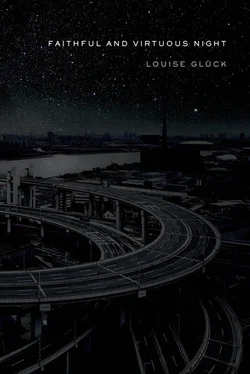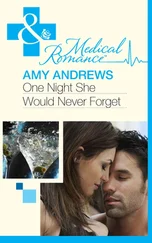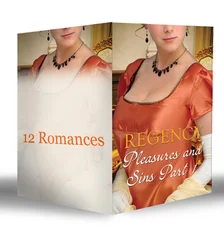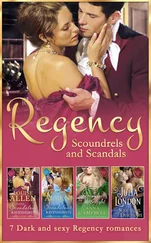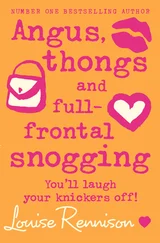I sympathize. Those to whom
I am bound by affection
will forgive, I hope, the distortions
compelled by the occasion.
I will be brief. This concludes,
as the stewardess says,
our short flight.
And all the persons one will never know
crowd into the aisle, and all are funneled
into the terminal.
One day continuously followed another.
Winter passed. The Christmas lights came down
together with the shabby stars
strung across the various shopping streets.
Flower carts appeared on the wet pavements,
the metal pails filled with quince and anemones.
The end came and went.
Or should I say, at intervals the end approached;
I passed through it like a plane passing through a cloud.
On the other side, the vacant sign still glowed above the lavatory.
My aunt died. My brother moved to America.
On my wrist, the watch face glistened in the false darkness
(the movie was being shown).
This was its special feature, a kind of bluish throbbing
which made the numbers easy to read, even in the absence of light.
Princely, I always thought.
And yet the serene transit of the hour hand
no longer represented my perception of time
which had become a sense of immobility
expressed as movement across vast distances.
The hand moved;
the twelve, as I watched, became the one again.
Whereas time was now this environment in which
I was contained with my fellow passengers,
as the infant is contained in his sturdy crib
or, to stretch the point, as the unborn child
wallows in his mother’s womb.
Outside the womb, the earth had fallen away;
I could see flares of lightning striking the wing.
When my funds were gone,
I went to live for a while
in a small house on my brother’s land
in the state of Montana.
I arrived in darkness;
at the airport, my bags were lost.
It seemed to me I had moved
not horizontally but rather from a very low place
to something very high,
perhaps still in the air.
Indeed, Montana was like the moon—
My brother drove confidently over the icy road,
from time to time stopping to point out
some rare formation.
We were, in the main, silent.
It came to me we had resumed
the arrangements of childhood,
our legs touching, the steering wheel
now substituting for the book.
And yet, in the deepest sense, they were interchangeable:
had not my brother always been steering,
both himself and me, out of our bleak bedroom
into a night of rocks and lakes
punctuated with swords sticking up here and there—
The sky was black. The earth was white and cold.
I watched the night fading. Above the white snow
the sun rose, turning the snow a strange pinkish color.
Then we arrived.
We stood awhile in the cold hall, waiting for the heat to start.
My brother wrote down my list of groceries.
Across my brother’s face,
waves of sadness alternated with waves of joy.
I thought, of course, of the house in Cornwall.
The cows, the monotonous summery music of the bells—
I felt, as you will guess, an instant of stark terror.
And then I was alone.
The next day, my bags arrived.
I unpacked my few belongings.
The photograph of my parents on their wedding day
to which was now added
a photograph of my aunt in her aborted youth, a souvenir
she had cherished and passed on to me.
Beyond these, only toiletries and medications,
together with my small collection of winter clothes.
My brother brought me books and journals.
He taught me various new world skills
for which I would soon have no use.
And yet this was to me the new world:
there was nothing, and nothing was supposed to happen.
The snow fell. Certain afternoons,
I gave drawing lessons to my brother’s wife.
At some point, I began to paint again.
It was impossible to form
any judgment of the work’s value.
Suffice to say the paintings were
immense and entirely white. The paint had been
applied thickly, in great irregular strokes—
Fields of white and glimpses, flashes
of blue, the blue of the western sky,
or what I called to myself
watch-face blue. It spoke to me of another world.
I have led my people, it said,
into the wilderness
where they will be purified.
My brother’s wife would stand mesmerized.
Sometimes my nephew came
(he would soon become my life companion).
I see, she would say, the face of a child.
She meant, I think, that feelings emanated from the surface,
feelings of helplessness or desolation—
Outside, the snow was falling.
I had been, I felt, accepted into its stillness.
And at the same time, each stroke was a decision,
not a conscious decision, but a decision nevertheless,
as when, for example, the murderer pulls the trigger.
This, he is saying. This is what I mean to do.
Or perhaps, what I need to do.
Or, this is all I can do.
Here, I believe, the analogy ends
in a welter of moral judgments.
Afterward, I expect, he remembers nothing.
In the same way, I cannot say exactly
how these paintings came into being, though in the end
there were many of them, difficult to ship home.
When I returned, Harry was with me.
He is, I believe, a gentle boy
with a taste for domesticity.
In fact, he has taught himself to cook
despite the pressures of his academic schedule.
We suit each other. Often he sings as he goes about his work.
So my mother sang (or, more likely, so my aunt reported).
I request, often, some particular song to which I am attached,
and he goes about learning it. He is, as I say,
an obliging boy. The hills are alive, he sings,
over and over. And sometimes, in my darker moods,
the Jacques Brel which has haunted me.
The little cat is dead, meaning, I suppose,
one’s last hope.
The cat is dead, Harry sings,
he will be pointless without his body.
In Harry’s voice, it is deeply soothing.
Sometimes his voice shakes, as with great emotion,
and then for a while the hills are alive overwhelms
the cat is dead.
But we do not, in the main, need to choose between them.
Still, the darker songs inspire him; each verse acquires variations.
The cat is dead: who will press, now,
his heart over my heart to warm me?
The end of hope, I think it means,
and yet in Harry’s voice it seems a great door is swinging open—
The snow-covered cat disappears in the high branches;
O what will I see when I follow?
Once there was a horse, and on the horse there was a rider. How handsome they looked in the autumn sunlight, approaching a strange city! People thronged the streets or called from the high windows. Old women sat among flowerpots. But when you looked about for another horse or another rider, you looked in vain. My friend, said the animal, why not abandon me? Alone, you can find your way here. But to abandon you, said the other, would be to leave a part of myself behind, and how can I do that when I do not know which part you are?
As I turned over the last page, after many nights, a wave of sorrow enveloped me. Where had they all gone, these people who had seemed so real? To distract myself, I walked out into the night; instinctively, I lit a cigarette. In the dark, the cigarette glowed, like a fire lit by a survivor. But who would see this light, this small dot among the infinite stars? I stood awhile in the dark, the cigarette glowing and growing small, each breath patiently destroying me. How small it was, how brief. Brief, brief, but inside me now, which the stars could never be.
Читать дальше
